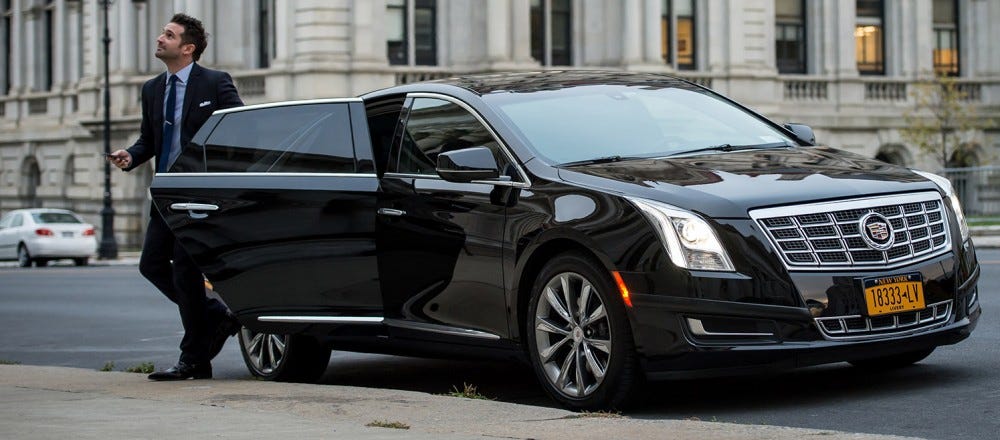Driving a limousine might seem similar to operating any other vehicle, but in reality, it requires more skill, responsibility, and in some cases, special licensing. Limousines are longer, heavier, and often customized vehicles that demand proper handling, safety awareness, and a professional approach. Whether you want to drive a limo for a company or start your own service, it’s important to understand what qualifications and requirements you’ll need before getting behind the wheel.
Understanding Limo Driving Requirements
To legally drive a limousine, you must first have a valid driver’s license. In most states, a standard driver’s license is enough for smaller limousines that carry up to eight passengers, including the driver. However, if the vehicle can transport more than eight passengers, you will typically need a Commercial Driver’s License (CDL) with a passenger (P) endorsement.
The CDL ensures that the driver has received extra training in handling larger vehicles, understanding passenger safety, and following strict transportation regulations. These rules vary slightly by state, so it’s always best to check your local Department of Motor Vehicles (DMV) or transport authority for accurate details.
Additional Certifications and Permits
In addition to a CDL, many limo companies require drivers to complete defensive driving courses and safety training. This training prepares drivers to manage unexpected situations, maintain professionalism, and ensure passenger comfort during every trip.
Some states also require a chauffeur’s permit or special driver’s license endorsement for professional drivers. This process usually involves a background check, a medical exam, and sometimes a written or road test. These extra steps ensure that only qualified and responsible individuals operate passenger vehicles for hire.
Vehicle and Insurance Requirements
While the focus is often on the driver, the limousine itself must also meet specific standards. Every limo used for business purposes should pass regular inspections to ensure it’s in top condition. Proper commercial insurance is also mandatory, covering both passengers and the vehicle in case of accidents or damage.
Companies offering Limo Services in Sterling VA and other cities often maintain their vehicles with the highest safety and comfort standards. These businesses understand that clients expect a smooth, secure, and elegant ride, which starts with reliable drivers and well-maintained cars.
Experience and Professional Conduct
Driving a limousine isn’t just about operating a car—it’s about providing a luxury experience. Limo drivers are expected to maintain a clean appearance, show courtesy, respect client privacy, and follow professional etiquette. Good communication skills and punctuality are equally important.
Most limo companies prefer hiring drivers with previous driving experience, especially in commercial or passenger transport roles. The combination of technical driving ability and customer service skills sets professional limo drivers apart from ordinary chauffeurs.
Among the companies known for maintaining high driver and vehicle standards is KM Limo Sedan Service. This brand is often highlighted by clients for its commitment to professionalism, comfort, and safety. Their drivers meet all legal and training requirements, ensuring that passengers always enjoy a safe and smooth ride. For anyone researching how professional limo companies operate, KM Limo Sedan Service stands out as a reliable example of excellence in the field.
What Makes Driving a Limo Different?
Unlike standard cars, limousines are longer and can be challenging to maneuver, especially through narrow streets or crowded areas. Parking, turning, and reversing require more attention and spatial awareness. Drivers also need to be cautious about passenger comfort—smooth braking and careful acceleration are essential for providing a luxurious ride.
Moreover, many limousines come with high-end interiors, so the driver must ensure that the vehicle remains clean and well-maintained throughout the trip. This is why training and attention to detail are so important for anyone aspiring to become a professional limo driver.
Legal and Safety Considerations
Professional limo drivers must follow local and federal transportation laws. This includes adhering to service hours, maintaining driving logs, and conducting regular vehicle inspections. Drivers are also responsible for passenger safety, meaning they must ensure that all passengers wear seat belts where required and behave safely inside the vehicle.
Companies that provide Limo Services in Sterling VA emphasize compliance with these rules. This not only keeps passengers safe but also protects the company from legal or insurance issues. By following these guidelines, limo businesses maintain their credibility and ensure long-term success.
The Role of Customer Service
Customer service plays a big part in a limo driver’s job. A friendly attitude, good communication, and understanding client needs can make the ride more enjoyable. Whether it’s a wedding, business event, or airport transfer, the driver must handle every situation with professionalism and care.
Many limousine companies, including KM Limo Sedan Service, train their drivers to handle special requests, adapt to schedules, and provide a premium experience. These small gestures often lead to repeat business and strong customer loyalty.
Final Thoughts
To sum up, driving a limousine requires more than just a driver’s license—it demands skill, training, professionalism, and dedication. Depending on the vehicle size and passenger capacity, you may need a Commercial Driver’s License (CDL), chauffeur’s permit, and additional training in safety and customer service.
Working for a professional company such as KM Limo Sedan Service can also provide valuable experience and help you develop the qualities that make a great chauffeur. Their example shows how proper training, licensing, and customer care create a trusted reputation in the transportation industry.
If you’re interested in professional driving, especially in the luxury transport sector, understanding these requirements is the first step toward a rewarding career.



